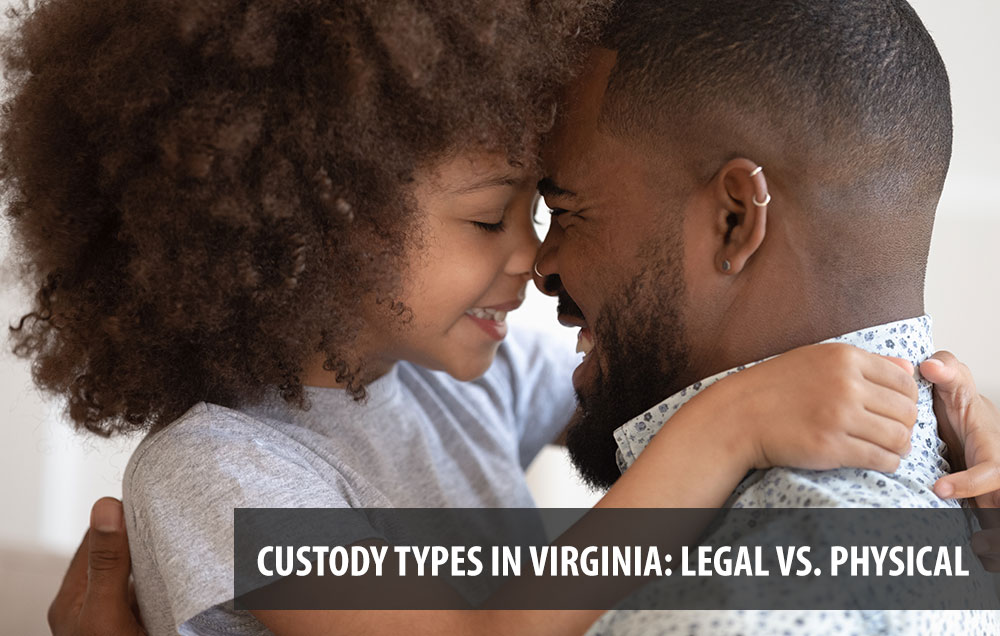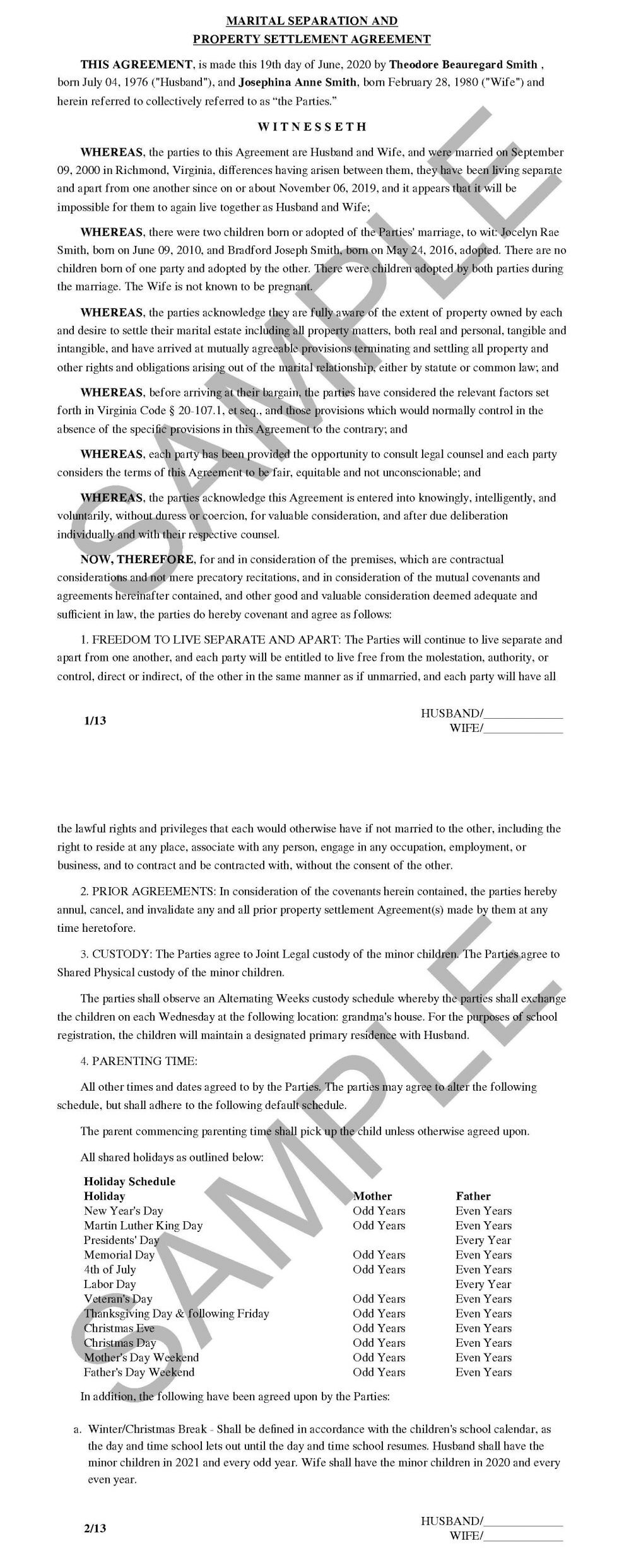The great state of Virginia recognizes two types of custody, and within each, two methods of administering it. As you go about a separation and divorce, you need to be aware of the differences and features of legal and physical custody.
Legal Custody Explained
Virginia puts the needs and welfare of its children above all else in family law. When you and your spouse begin the process of separation and divorce (whether you do this through a convenient, private online program or through an attorney), you must consider the needs of your children above your own needs.
This concept, the “best interest of the child,” is baked into Virginia law. When the Circuit Court awards custody of your children to you or your spouse, two types of custody are awarded: legal custody and physical custody.
Legal custody is the right and responsibility of the parent to make decisions for the child in these areas:
- Education
- Religion
- Medical and dental needs
Your child’s school suggests you approve testing for a learning disability. Who signs off on the forms? The parent with legal custody. Your pediatrician says your child is underweight; who determines if a second opinion is needed and arranges it? The parent with legal custody.
Your child needs braces, glasses, prescriptions for ADHD, orthotics, or sports goggles. Who handles all those specialists, appointments, and follow ups? The parent with legal custody.
Your family church offers summer religious camp. Who signs your child up, arranges transportation, and pays for it? The parent with legal custody (though the noncustodial parent could indirectly pay through child support).
A Virginia parent can have physical custody but not have legal custody. Other permutations exist: one parent could have sole physical custody but share joint legal custody with the other parent. Or, one parent could have both sole physical and legal custody.
Joint Legal Custody
In joint legal custody, responsibility for all decisions affecting the mental, physical, spiritual and academic lives of your children is shared between both parents. No decision can be made only by one parent. Both parents bear the responsibility for appointments, adhering to doctors’ advice, monitoring and administering medications, selecting and signing off on coursework, and meeting with school officials.
The precise definition of joint legal custody is, “where both parents … joint authority to make decisions concerning the child even though the child’s primary residence may be with only one parent,” under Code of Virginia § 20-124.1.
Sole Legal Custody
In sole legal custody, one parent alone bears all the responsibility for decisions regarding the child’s development in matters of education, religion, and medicine. That parent has, according to § 20-124.1, “primary authority to make decisions concerning the child.”
Physical Custody Explained
Virginia’s legislators and courts put the best interests of your children above your own concerns. This is shown over and over in Virginia Code, so a ruling by a Circuit Court that only one parent has physical custody should never be seen as a slap in your face or condemnation of your parenting skills. Rather, the court determines that the other parent can better provide for the child’s physiological needs (shelter, food, clothing, rest, warmth) and psychological needs (esteem, love, relationships, friends).
When working through a separation agreement using a Property Settlement Agreement, you and your spouse should take the same approach that Virginia’s courts take: what is best for the kids?
Sole Physical Custody
Sole physical custody means the child lives full-time with one parent and visits with the other during scheduled parenting time. The custodial parent bears the larger burden of providing for the child’s needs. Under Virginia law, men have an equal right to sole physical custody as women do. The non-custodial parent can strive for maximum visitation time, but the child is legally under the care of the custodial parent.
Joint Physical Custody
Turning again to Code of Virginia § 20-124.1, this type of custody is legally defined as, “joint physical custody where both parents share physical and custodial care of the child …”
Both parents are responsible for all the needs of all the children. This shared custody can be according to a plan that works for the best interest of the child. That means one parent could have custody for the school year with weekend visits to the other parent. Then, during school breaks, the child lives with the other parent. Or, joint physical custody could mean a schedule of one week with one parent, the next week with the other parent.
A court is unlikely to approve a parenting time schedule that puts too much stress on the child or that requires frequent moves between parents’ homes (one day here, one day there). Your joint custody plan also needs to take into account vacations, holidays, and special family days (reunions, birthdays).
By giving careful thought to what is best for your children, you and your spouse can be ready to answer every question in completing your personalized separation agreement using the tools available from TheFirmForDivorce.com.


